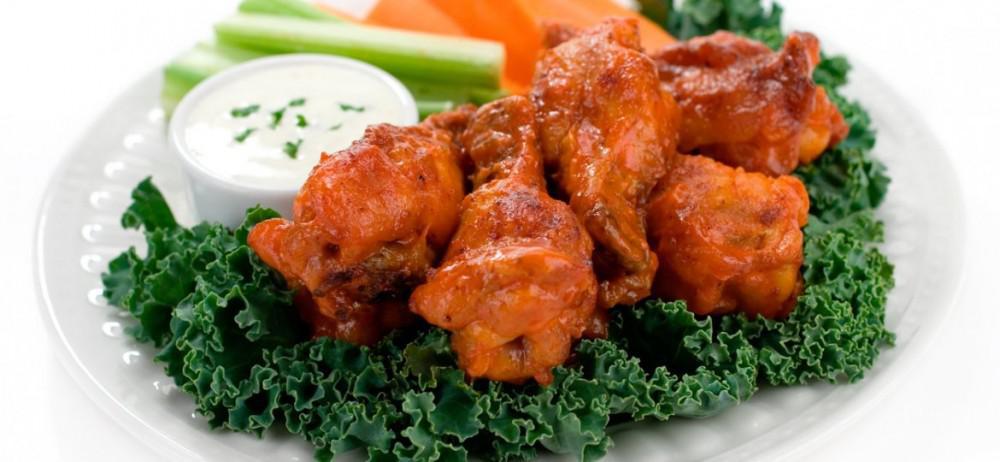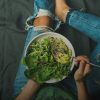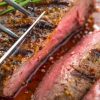
Dressed to kill
Salad is the perfect way to put a rainbow on your plate and in your belly. And we all eat with our eyes before we put a bite up to our lips- so be creative, make it colorful and beautiful to look at, and it will be that much more delectable. Also remember that different colored fruits and vegetables provide different vitamin and mineral contents. So when we eat an array of fruits and veggies, and adequate amounts of them, we get a variety of nutrients and phytochemicals, which we need for optimal health and for disease prevention.
But how you dress the salad is key to enhancing flavors and making the dish meaningful.
Dressings like ranch, blue cheese, and thousand island are often high in calories, high in saturated fat, and high in sodium. In fact, a 2-tablespoon serving of a typical blue cheese dressing tacks on nearly 150 calories and 15 grams of fat. And many people drench theirs. May as well have a cheeseburger.
So, go with a low-calorie, fat-free dressing, right? Um- NO!
To make up for flavor, they’re often loaded with extra sugar and sodium. Fat makes salads tastier and healthier. Your body needs fat to take in and use certain vitamins, like A, D, E, and K. Fats also create satiety and satisfaction. We just need to choose the right fat. Think plant-based fat.
Levana Kirshenbaum is a favorite chef of mine. I remember her teaching that, “any oil and any vinegar with any seasoning is better than any bottled dressing.” She meant more flavorful and healthier. So start with olive oil (2/3 cup), which has heart-healthy unsaturated fat. Whisk in your favorite vinegar or citrus (1/3 cup.) You can also add a little Dijon mustard, honey, garlic and fresh or dried herbs, salt and black pepper. The dressing will last for up to 2 weeks in the refrigerator. All you will need to dress your salad is a couple of tablespoons. Come up with your own combo, you cant go wrong…
Oils (2/3 cup)
Olive
Almond
Walnut
Peanut
Avacado
Coconut
Safflower
Yogurt is a great sub for mayo
Acid (1/3 cup)
Balsamic vinegar
Red wine vinegar
White wine vinegar
Champagne vinegar
Rice vinegar
Umebashi (plum) vinegar
Apple cider vinegar
Lemon
Lime
Orange
Herbs and Spices (fresh or dried, handful of any combo works)
Oregano
Basil
Thyme
Cilantro
Parsley
Rosemary
Shallot, garlic, onion, ginger (a chunk to marinate or diced to be eaten)
Mustard
Honey
Salt & Pepper
Now for the toppings- croutons, cheese, bacon bits, crispy fried or breaded strips can turn your salad into a calorie bomb in the making. Even canned or dried fruits and candied nuts can provide unwanted sugar and sodium. Choose raw nuts and seeds, beans, and fresh produce. Lean cuts of chicken, tuna without the mayo, and boiled eggs provide a great source of protein and texture to your masterpiece. And leftover roasted dinner veggies work well and provide a punch of color.
The right toppings can create a filling, whole bowl meal that’s loaded with vitamins, minerals, protein, healthy fats, and smart carbs. Be aware of other ingredients that can pack in extra calories, fat, sodium, and sugar. By making good choices, you can toss together a salad that’s delicious and nutritious.


